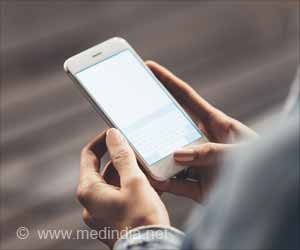Smartphone apps are the future of healthcare. Smartphones can allow persons living in rural areas such as sub-Saharan Africa to test themselves, obtain the results and be medically advised in their own homes where hospitals and clinics might be located far away.
- Smartphones can be used by patients to test themselves, upload the results to local clinics and get medical advice from healthcare personnel sitting in the comfort of their home rather than attending in person
- Smartphones are increasingly becoming popular in sub-Saharan Africa. It is expected that by 2020, one in two mobile phone connections in the region will be through smartphones
- Just as people are increasingly using smartphones to control their finances and connect with the world, it is only sensible that smartphones can be applied more usefully in the area of healthcare as well for the well being and convenience of patients
Professor Molly Stevens, lead author from Imperial's Departments of Bioengineering and Materials, said: "People increasingly use smartphones to manage their money and connect with the world. It makes sense that phones can also play an even larger role in healthcare than they already do."
The details of the review appear in the journal Nature.
Read More..
How Smartphones Help in Diagnosing Infections at Home
Many smartphones come with built-in sensors such as heart rate monitor and an oximeter to measure oxygen concentrations in the blood, as well as a camera and microphone that can be used to interpret images and sounds such as breathing.Additionally, simple testing devices and technologies are being developed that can be attached to a phone, either through a USB stick or wirelessly.
Thus, a person can test himself at home by means of a blood sample through a pinprick and scan the results into the mobile phone app.
The apps would then transmit the results to the nearest clinics and then be uploaded onto a central online database. This saves the patient the time and effort of attending the hospital in person.
Additionally, the apps may allow the patient to set up virtual consultations with health care personnel and resources such as these will increase the rates of persons getting tested and seeking treatment, particularly in regions with scarce facilities and infrastructure.
Persons who want to rule out HIV infections will be encouraged to get tested at home rather than the stigma associated with attending the clinic in person.
If the app testing is used widely, it will help doctors and healthcare workers to be alert about a similar cluster of symptoms across a region that could predict potential outbreaks and be well prepared to fight such occurrences.
Challenges of Smartphones in Health Diagnosis
- Over 35 percent of the global population has no access to mobile phones
- Accuracy of test results is likely to be higher in labs and clinics where there are trained staffs and proper sterile conditions are maintained compared to home
- Measures must be put in place to safeguard the data of the patient and keep it confidential. These must be clearly explained to the patients to encourage them to adopt the new technologies for health care
Summary
Smartphone apps can be used to diagnose infectious diseases at home by patients themselves in remote and rural regions such as sub-Saharan Africa where health centers are very far. This will improve testing and drastically improve health and well being of the population.Reference:
- Taking connected mobile-health diagnostics of infectious diseases to the field - (https://doi.org/10.5281/zenodo.1320937)
Source-Medindia










